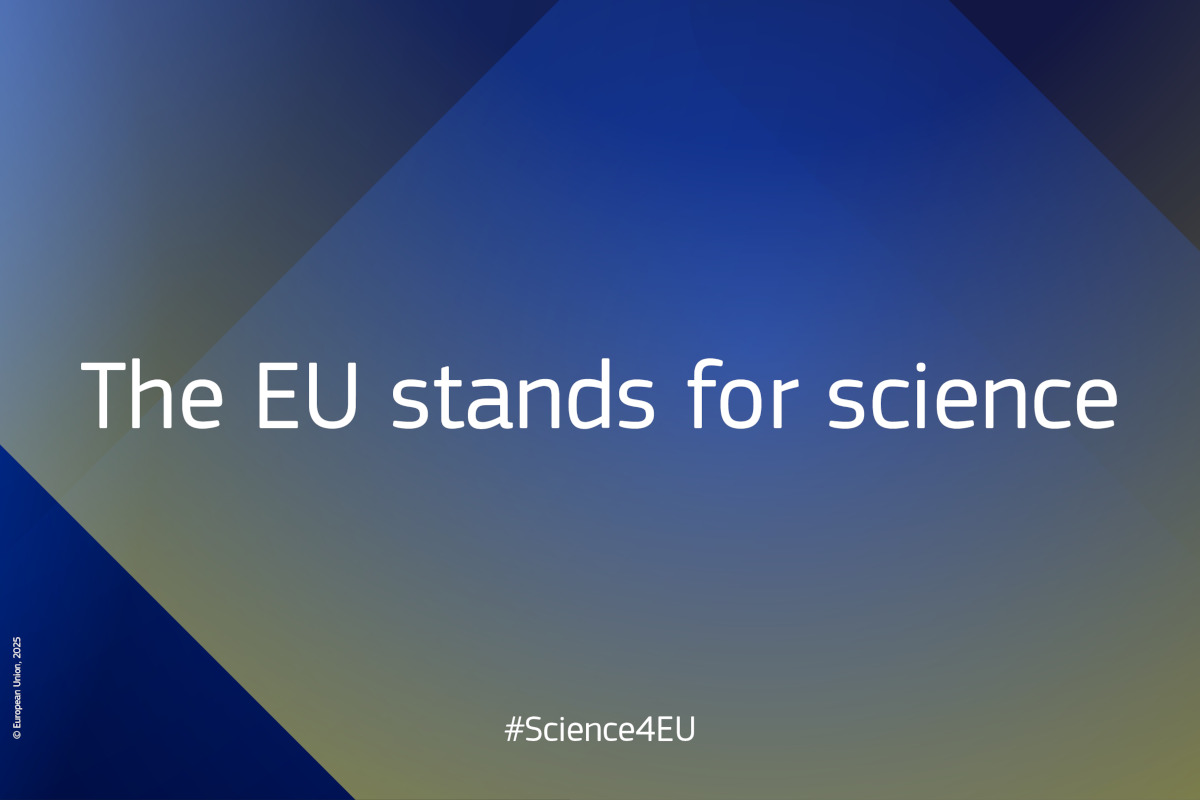An EU-funded research initiative is guiding Europe’s coal regions through the transition to renewable energy, while focusing on job creation and clean energy.
Special series

Science4EU
The Science4EU campaign shows how the EU stands for science. It shines a spotlight on the scientists, researchers, and innovators working with EU support to improve our lives and shape a better future for everyone.
Do you also stand for science?
Podcast
Media AV Portal Audio
More stories

EU-funded researchers are merging multidisciplinary expertise with AI tools to document, reconstruct and preserve Europe’s historical scents.
Most popular
-
1By Michaela Nesvarova
-
2
-
3By Hannah Docter-Loeb
-
4
-
5By Andrew Dunne
Top videos
Breaking free from coal: Europe’s regions forge a sustainable future with EU support
11 July 2025
Art meets AI to reinvent tomorrow’s food systems
9 July 2025
Past articles
New experiments that crush material between two diamonds to simulate the extraordinarily high temperatures and pressures found in the earth's interior are providing answers to the age-old questions of what our planet is made of, and where its ingredients came from.
Detecting diseases, removing CO2 from chemicals and uncovering the composition of the earth’s core: diamonds have many more uses than just decorating our hands. This January, Horizon talks to the researchers who are unearthing new ways of using one of nature’s most treasured materials.
The application of molecular motors in medicine and materials science, the design of social robots for educational and health purposes, and a push towards making legumes more attractive for farmers to grow are some of the predictions made by researchers in Horizon’s poll of major developments this year.
From slime mould to space junk, and Botox to cow burps, Horizon journalists covered a wide range of stories in 2015 - and learned some curious facts along the way. Here are our favourites.
A greater scientific understanding of consciousness is allowing researchers to quantify exactly how conscious we are at any given moment, and the resulting measurements are providing new insight into the likelihood of coma patients to recover.
Non-edible biomass could replace petrochemicals in providing energy to heat and light our homes, as well as in producing a vast array of plastics, lubricants, paints and a host of industrial chemicals, according to Dr Philippe Mengal, the recently appointed executive director of the Bio-Based Industries Joint Undertaking (BBI JU), a public-private partnership between the EU and bio-based industries.
Huge indoor farms combining crops and livestock could transform the way we think about food, bringing exotic produce to countries such as Estonia without costing the earth.
Researchers are using fMRI scanners and specially designed questions to decode your mind, and it’s helping them unpick the links between behaviour and emotions.
Despite Matt Damon’s heroics in The Martian, where he overcomes the odds to survive after being left behind during a mission to the Red Planet, EU-funded researchers reveal that we don’t have the technology yet to get there alive and survive.
Organs simulated on a chip and vast chemical databases are helping researchers to work out whether a new mascara, toothpaste or eye shadow is likely to make you sick, now that they aren’t allowed to test them on animals.
We may like to think that we are uniquely rational creatures, but some of our reactions may be more ingrained than we like to think.
Galaxies aren’t as massive as computer simulations suggested they should be – and now scientists have one explanation for this.
Europe’s roboticists are coming together to find new ways of getting their prosthetic arms, grocery-picking machines and automated vacuum cleaners out of the laboratory and into Europe’s homes and businesses.
It’s one of the mysteries that has confounded scientists for over a century – if you offer sick people fake pills and say it will help cure them, it often will. Now, researchers are working out exactly how the placebo effect operates in the brain and how it can be enhanced in order to harness its power in a new approach to treating disease.
This December, Horizon talks to scientists who are drawing lines between free will and genetic disposition, differentiating between feeling and thinking, unlocking how our brains process placebo drugs, and even defining the grey area between consciousness and unconsciousness in comatose patients.
The stigma associated with AIDS and homophobia has made the pandemic even more destructive as in many countries it drives people away from modern treatment that could let them live a normal life, according to Prof. Nathan Clumeck, a leading member of the European AIDS treatment Network (NEAT) with St Pierre University Hospital in Brussels, Belgium.
Body-enhancing robotic exoskeletons will soon be stepping out of movies such as Alien, Avatar and Edge of Tomorrow and into homes, clinics and workplaces across Europe.
Yeast that tracks the stock market index, a woman who simulates giving birth to a dolphin baby and homemade human cheese are just a few projects that have emerged from collaborations between scientists and artists – and the result is to produce better science and innovation, say researchers.
Particles so small that they could carry drugs directly into the brain are offering a new hope for a way to stop the progression of Alzheimer’s disease, or even prevent it from happening at all.
The level of greenhouse gas emissions being produced around the world means that, as things stand, temperatures are likely to rise by around 4.5 degrees by 2100, unless significant reductions are agreed, sophisticated climate simulations show.





























